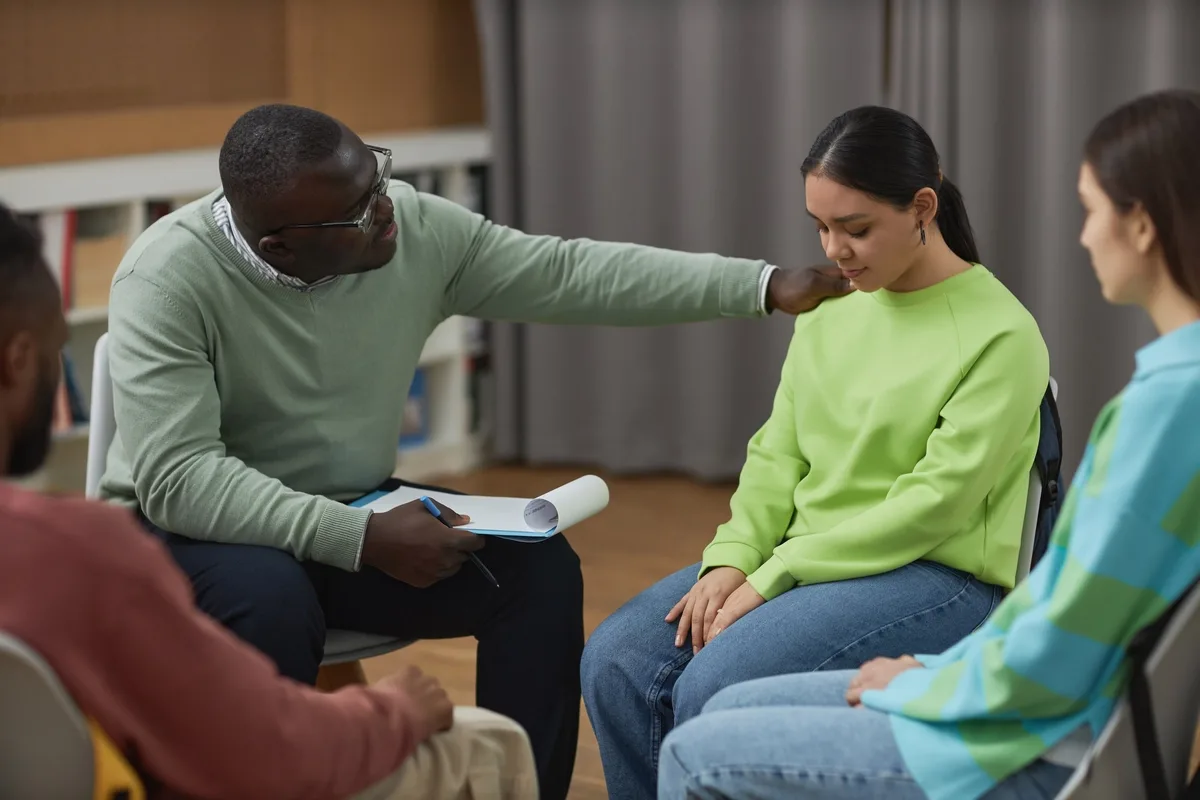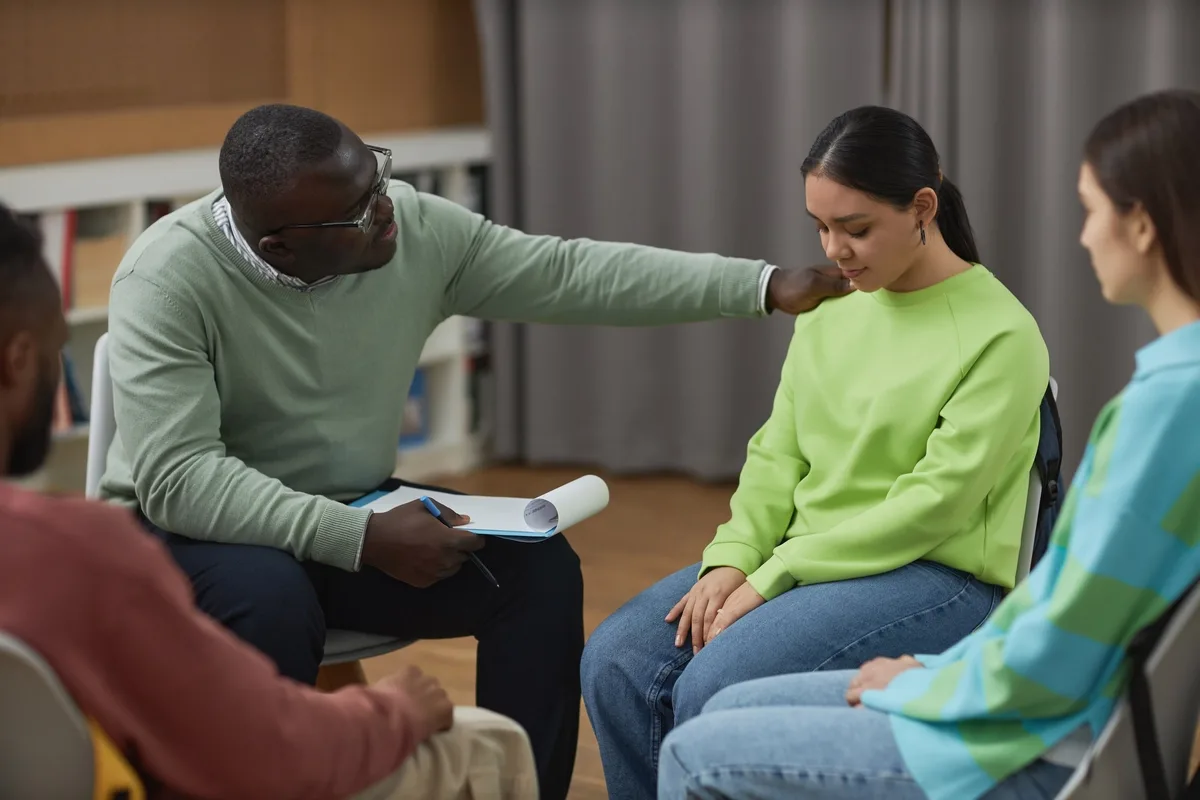24/7 Helpline:
(866) 899-221924/7 Helpline:
(866) 899-2219
Learn more about PTSD Rehab centers in Ida
PTSD Rehab in Other Cities

Other Insurance Options

Aetna

Holman Group

Lucent

BHS | Behavioral Health Systems

WellPoint

Group Health Incorporated

WellCare Health Plans

Sutter

UnitedHealth Group

PHCS Network

EmblemHealth

Carleon

Amerigroup

UMR

Magellan Health

MHNNet Behavioral Health

AllWell

Self-pay options

Private insurance
Beacon









Center for Behavioral Health
Center for Behavioral Health is a private rehab located in Shreveport, Louisiana. Center for Behavio...

Physicians Behavioral Hospital
Physicians Behavioral Hospital, located in Shreveport, Louisiana, offers alcohol and drug rehab serv...

Shreveport-Bossier Rescue
Shreveport-Bossier Rescue is a non-profit organization located in Shreveport, LA. Shreveport-Bossier...

Shreveport Behavioral Health Clinic
Shreveport Behavioral Health Clinic is a public rehab located in Shreveport, Louisiana. Shreveport B...

Council on Alcoholism and Drug Abuse of Northwest Louisiana – CADA
Council on Alcoholism and Drug Abuse of Northwest Louisiana (CADA) is a non-profit, private health o...

Palmetto Addiction Recovery Center
Palmetto Addiction Recovery Center provides high quality, personalized treatment to individuals suff...

CADA – Adolescent Treatment Center
CADA - Adolescent Treatment Center provides high-quality, affordable addiction treatment. CADA - Ado...








Contemporary Quality Care
Contemporary Quality Care is a private rehab located in Shreveport, Louisiana. Contemporary Quality ...

Community Enrichment
Community Enrichment is a private rehab located in Shreveport, Louisiana. Community Enrichment speci...

Center for Families – Addictive Disorders
Center for Families – Addictive Disorders is a private rehab located in Shreveport, Louisiana. Cente...

Rehab Services of NW LA
Rehab Services of NW LA is a private rehab located in Shreveport, Louisiana. Rehab Services of NW LA...

Halfwaythere Cottage
Halfwaythere Cottage is a private rehab located in Shreveport, Louisiana. Halfwaythere Cottage speci...

Cottage House For Men
Cottage House For Men is a private rehab located in Shreveport, Louisiana. Cottage House For Men spe...

New Day Rehabilitation
New Day Rehabilitation is a private rehab located in Shreveport, Louisiana. New Day Rehabilitation s...

Christian Counseling
Christian Counseling is a private rehab located in Shreveport, Louisiana. Christian Counseling speci...

Detox Abuse Action Addiction
Detox Abuse Action Addiction is a private rehab located in Shreveport, Louisiana. Detox Abuse Action...

Substance Abuse Services Oklahoma Safety Center
Substance Abuse Services Oklahoma Safety Center is a private rehab located in Shreveport, Louisiana....

Regional Counseling Center – Oil City
Regional Counseling Center – Oil City is a private rehab located in Oil City, Pennsylvania. Regional...

Family Services – Alcohol and Drug Counseling – Oil City
Family Services – Alcohol and Drug Counseling – Oil City is a private rehab located in Oil City, Pen...

Family Services and Childrens Aid Society
Family Services and Childrens Aid Society is a private rehab located in Oil City, Pennsylvania. Fami...
















































































































































































































